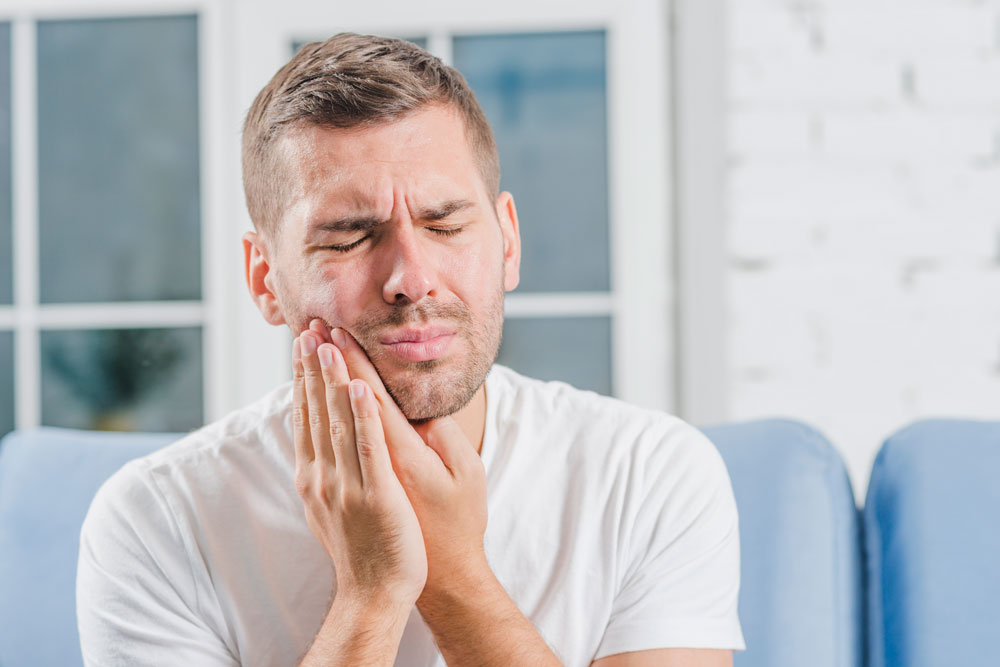According to The American Dental Association, teeth grinding can be caused by stress, anxiety and sleep disorders, as well as a variety of other health issues. Unfortunately, without treatment, teeth grinding can have adverse side effects. Read on for the side effects of teeth grinding and how you can prevent it.
Teeth Grinding During Sleep or Wakefulness
It’s a common misconception that teeth grinding only happens at night. While it’s true that most patients experience teeth grinding while asleep, it can still be something that occurs while awake as well. Patients who experience high amounts of stress tend to grind their teeth or clench their jaw during the day without even realizing it.
Headaches, Soreness and Fractured Teeth
If a patient is prone to teeth grinding, it’s common to wake up with a headache or soreness in the jaw or mouth. Extreme grinding can even lead to loose teeth or damaged teeth. If you notice any of these symptoms, talk to your dentist about teeth grinding right away. The sooner you address the problem, the better chances you have of correcting it.
Mouth Guards for Prevention
If you grind your teeth often enough that it’s beginning to cause problems, your dentist may recommend wearing a mouth guard at night. A mouth guard protects your teeth even when pressure is applied by your jaw. If you suffer from anxiety, your dentist or doctor may recommend muscle relaxants or anxiety medication to try and alleviate the teeth grinding. Talk to your dentist about all your options.
If you grind your teeth, talk to your dentist right away. Dr. Zola Makrauer and Dr. Julie Miller of Huntingdon Valley Dental Arts have years of experience helping patients deal with the effects of teeth grinding. Call for an appointment today!
